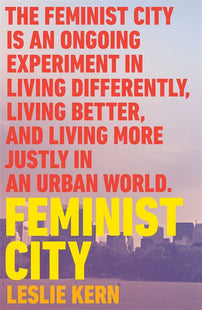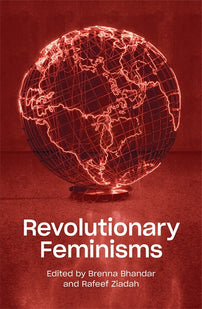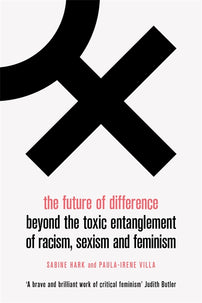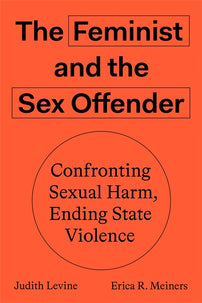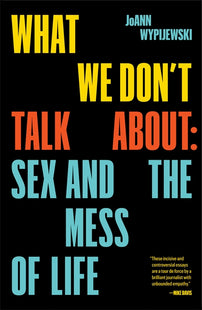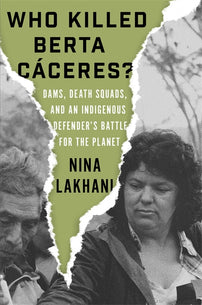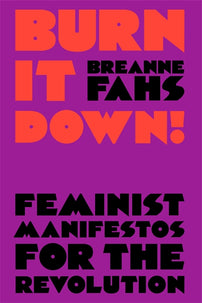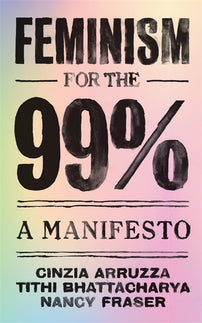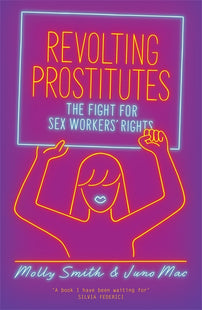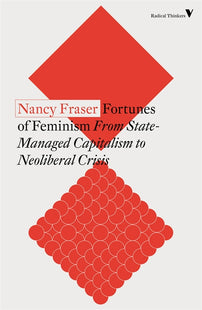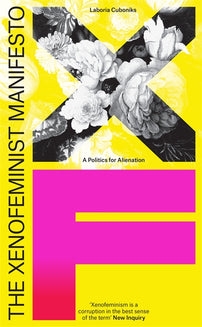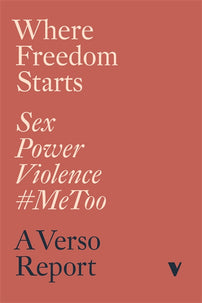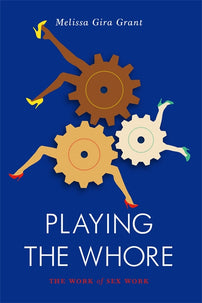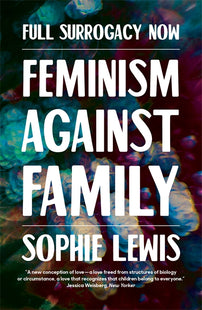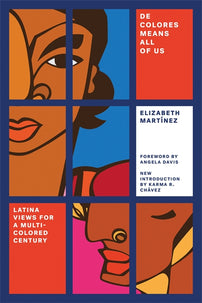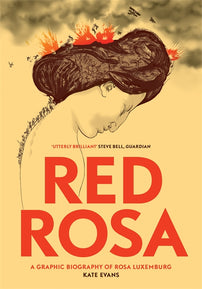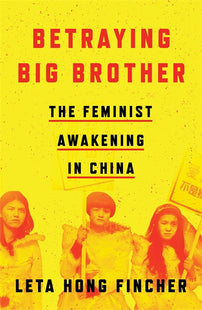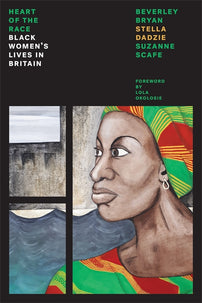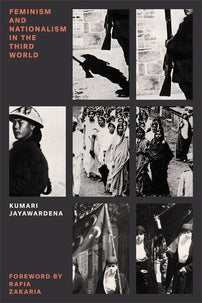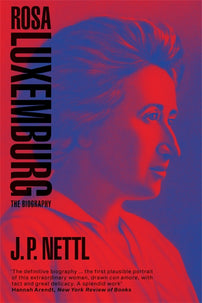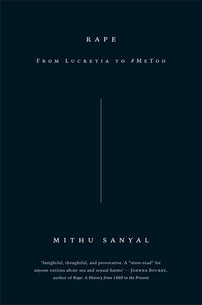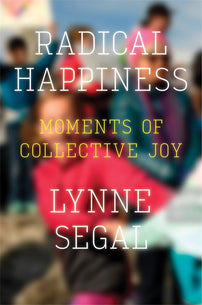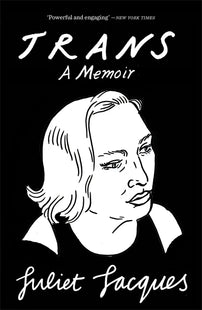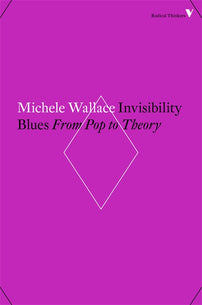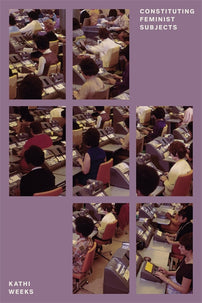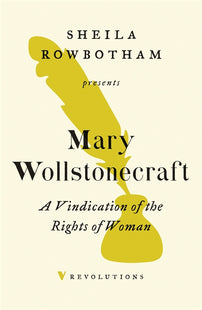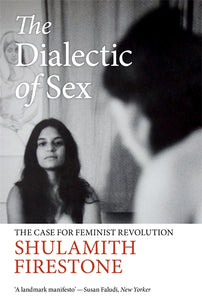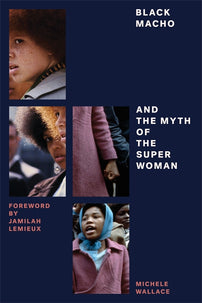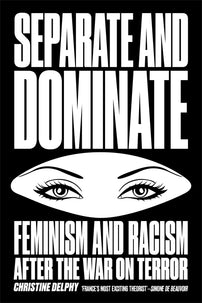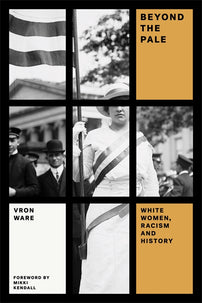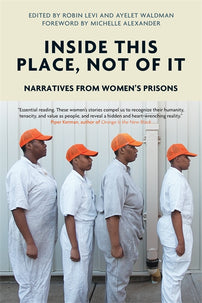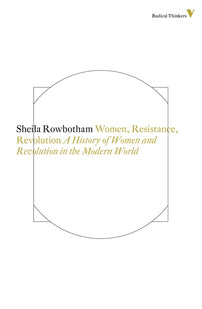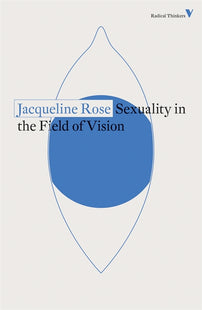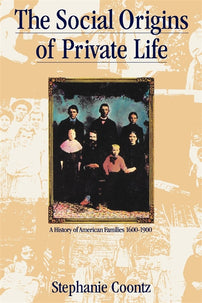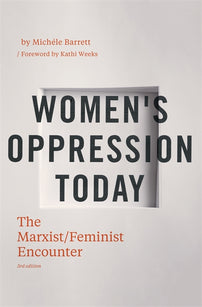Revolutionary Feminism
Feminist reading featuring Nancy Fraser, Nina Lakhani, Andrea Long Chu, Juno Mac and Molly Smith, Leta Hong Fincher, Sophie Lewis and Elizabeth Martínez.

From the grassroots history of the first wave, to human rights violations within women's prisons, demands for sex worker’s rights and a feminism that centers racial justice, and calls for transformative collective power, the revolutionary feminism reading list includes essential radical feminist reading to prepare you for the intersectional feminist fights ahead.
All our books are 40% off as part of our end of year sale. We also have bundled ebooks with every print purchase — meaning you can gift the print book (if you want to!) and start reading the ebook straight away! See more here.
We have lots more reading lists to help navigate our entire catalog of books here!
[book-strip index="1" style="buy"]We live in the city of men. Our public spaces are not designed for female bodies. There is little consideration for women as mothers, workers or carers. The urban streets often are a place of threats rather than community. Gentrification has made the everyday lives of women even more difficult. What would a metropolis for working women look like? It is time to dismantle what we take for granted about cities and to ask how we can build more just, sustainable, and women-friendly cities together.
[book-strip index="2" style="buy"]AVAILABLE FOR PRE-ORDER IN THE US
Through interviews with key revolutionary scholars, Bhandar and Ziadah present a thorough discussion of how anti-racist, anti-capitalist feminisms are crucial to building effective political coalitions. Collectively, these interviews with leading scholars including Angela Y. Davis, Silvia Federici, and many others, trace the ways in which black, indigenous, post-colonial and Marxian feminisms have created new ways of seeing, new theoretical frameworks for analysing political problems, and new ways of relating to one another.
[book-strip index="3" style="buy"]In recent years, opponents of “political correctness” have surged to prominence from both left and right, shaping a discourse in which perpetrators are “defiantly” imagined as Muslim refugees, i.e. outsiders/others, while victims are identified as “our women.” How can we learn to value difference when it is too often enlisted in the service of domination? Hark and Villa make a compelling case for the urgent necessity for a detoxification of feminism as a matter of urgency, and for an ethical mode of living-with the world, that is, living with alterity.
[book-strip index="4" style="buy"]In the era of #MeToo and mass incarceration, The Feminist and the Sex Offender makes a powerful feminist case for accountability without punishment and sexual safety and pleasure without injustice.
[book-strip index="5" style="buy"]What if we took sex out of the box marked “special,” the contents of which are either the worst or best thing a person can experience, and considered it within the complexity of human life in general? In this extraordinary book, and in defiance of the long-standing media obsessions that turn every sexual topic into a morality tale of monsters and victims, shame and virtue, journalist JoAnn Wypijewski does exactly that.
[book-strip index="6" style="buy"]The first time Honduran indigenous leader Berta Cáceres met the journalist Nina Lakhani, Cáceres said, ‘The army has an assassination list with my name at the top. I want to live, but in this country there is total impunity. When they want to kill me, they will do it.’ In 2015, Cáceres won the Goldman Prize, the world’s most prestigious environmental award, for leading a campaign to stop construction of an internationally funded hydroelectric dam on a river sacred to her Lenca people. Less than a year later she was dead.
[book-strip index="7" style="buy"]In this landmark collection spanning three centuries and four waves of feminist activism and writing, Burn It Down! is a testament to what is possible when women are driven to the edge. The manifesto—raging and wanting, quarreling and provoking—has always played a central role in feminism, and it’s the angry, brash feminism we need now.
[book-strip index="8" style="buy"]Unaffordable housing, poverty wages, inadequate healthcare, border policing, climate change—these are not what you ordinarily hear feminists talking about. But aren’t they the biggest issues for the vast majority of women around the globe?
[book-strip index="9" style="buy"]In Revolting Prostitutes, sex workers Juno Mac and Molly Smith bring a fresh perspective to questions that have long been contentious. Speaking from a growing global sex worker rights movement, and situating their argument firmly within wider questions of migration, work, feminism, and resistance to white supremacy, they make clear that anyone committed to working towards justice and freedom should be in support of the sex worker rights movement.
[book-strip index="10" style="buy"]Second Wave feminism emerged as a struggle for women’s liberation and took its place alongside other radical movements. But feminism’s subsequent immersion in identity politics coincided with a decline in its utopian energies and the rise of neoliberalism. Now, foreseeing a revival in the movement, Fraser argues for a reinvigorated feminist radicalism able to address the global economic crisis.
[book-strip index="11" style="buy"]Females is Andrea Long Chu’s genre-defying investigation into sex and lies, desperate artists and reckless politics, the smothering embrace of gender and the punishing force of desire.
Drawing inspiration from a forgotten play by Valerie Solanas—the woman who wrote the SCUM Manifesto and shot Andy Warhol—Chu aims her searing wit and surgical intuition at targets ranging from performance art to psychoanalysis, incels to porn. She even has a few barbs reserved for feminists like herself. Each step of the way, she defends the indefensible claim that femaleness is less a biological state and more a fatal existential condition that afflicts the entire human race— men, women, and everyone else. Or maybe she’s just projecting.
Unafraid of exploring the potentials of technology, both its tyrannical and emancipatory possibilities, the manifesto seeks to uproot forces of repression that have come to seem inevitable—from the family, to the body, to the idea of gender itself
[book-strip index="13" style="buy"]FREE EBOOK!
In this collection of new and previously published writings, leading activists, feminists, scholars, and writers describe the shape of the problem, chart the forms refusal has taken, and outline possible solutions. Importantly, they also describe the longer histories of organizing against sexual violence that the #MeToo moment obscures—among working women, women of color, undocumented women, imprisoned women, poor women, among those who don’t conform to traditional gender roles—and discern from these practices a freedom that is more than notional, but embodied and uncompromising.
[book-strip index="14" style="buy"]In Playing the Whore, journalist Melissa Gira Grant turns these pieties on their head, arguing for an overhaul in the way we think about sex work. Based on ten years of writing and reporting on the sex trade, and grounded in her experience as an organizer, advocate, and former sex worker, Playing the Whore dismantles pervasive myths about sex work, criticizes both conditions within the sex industry and its criminalization, and argues that separating sex work from the "legitimate" economy only harms those who perform sexual labor.
[book-strip index="15" style="buy"]Rather than looking at surrogacy through a legal lens, Lewis argues that the needs and protection of surrogates should be put front and center. Their relationship to the babies they gestate must be rethought, as part of a move to recognize that reproduction is productive work.
[book-strip index="16" style="buy"]Elizabeth Martínez’s unique Chicana voice has been formed through over thirty years of experience in the movements for civil rights, women’s liberation, and Latina/o empowerment. In De Colores Means All of Us, Martínez presents a radical Latina perspective on race, liberation and identity. She describes the provocative ideas and new movements created by the rapidly expanding US Latina/o community as it confronts intensified exploitation and racism.
[book-strip index="17" style="buy"]In this beautifully drawn work of graphic biography, writer and artist Kate Evans has opened up her subject’s intellectual world to a new audience, grounding Luxemburg’s ideas in the realities of an inspirational and deeply affecting life.
[book-strip index="18" style="buy"]Promise of a Dream is a moving, witty and poignant recollection of a time when young women were breaking all the rules. Sheila Rowbotham was, and remains, one of their most effective and endearing voices.
[book-strip index="19" style="buy"]Flora Tristan was one of the first women radicals to draw clear connections between the plight of disaffected workers and powerless women. Active in the 1830s and 1840s, and regarded as something of a pariah, she is best known for her book Workers’ Union, an account of the conditions of women in Peru, London, Paris and the provinces of France.
[book-strip index="20" style="buy"]Through interviews with the Feminist Five and other leading Chinese activists, Hong Fincher illuminates both the difficulties they face and their “joy of betraying Big Brother,” as one of the Feminist Five wrote of the defiance she felt during her detention. Tracing the rise of a new feminist consciousness now finding expression through the #MeToo movement, and describing how the Communist regime has suppressed the history of its own feminist struggles, Betraying Big Brother is a story of how the movement against patriarchy could reconfigure China and the world.
[book-strip index="21" style="buy"]This new edition includes a foreword by Lola Okolosie and an interview with the authors, chaired by Heidi Safia Mirza, focusing on the impact of their book since publication and its continuing relevance today.
[book-strip index="22" style="buy"]For twenty-five years, Feminism and Nationalism in the Third World has been an essential primer on the late nineteenth- and early twentieth-century history of women’s movements in Asia and the Middle East. In this engaging and well-researched survey, Kumari Jayawardena presents feminism as it originated in the Third World, erupting from the specific struggles of women fighting against colonial power, for education or the vote, for safety, and against poverty and inequality.
[book-strip index="23" style="buy"]In this classic biography J.P. Nettl provides an extraordinary portrait of one of the leading twentieth century revolutionaries and political thinkers.
[book-strip index="24" style="buy"]Mithu Sanyal shows that our comprehension of rape is closely connected to our understanding of sex, sexuality, and gender. Why is it that we expect victims to be irreparably damaged? When we think of rapists, why do we think of strangers rather than uncles, husbands, priests, or boyfriends? And in the era of #MeToo, what should “justice” look like?
[book-strip index="25" style="buy"]Segal believes we have lost the art of “radical happiness”—the liberation that comes with transformative, collective joy. She argues that instead of obsessing about our own well-being we should seek fulfilment in the lives of others. Examining her own experience in the women’s movement, Segal looks at the relationship between love and sex, and the scope for utopian thinking as a means to a better future.
[book-strip index="26" style="buy"]In July 2012, aged thirty, Juliet Jacques underwent sex reassignment surgery—a process she chronicled with unflinching honesty in a serialised national newspaper column. Trans tells of her life to the present moment: a story of growing up, of defining yourself, and of the rapidly changing world of gender politics.
[book-strip index="27" style="buy"]First published in 1990, Michele Wallace’s Invisibility Blues is widely regarded as a landmark in the history of black feminism. Wallace’s considerations of the black experience in America include recollections of her early life in Harlem; a look at the continued underrepresentation of black voices in politics, media, and culture; and the legacy of such figures as Zora Neale Hurston, Toni Cade Bambara, Toni Morrison,and Alice Walker.
[book-strip index="28" style="buy"]One of the most important tasks for contemporary feminist theory is to develop a concept of the subject able to meet the challenges facing feminist politics. Although theorists in the 1980s raised the problem of feminist subjectivity, Kathi Weeks contends that the limited nature of that discussion now blocks the further development of feminist theory.
[book-strip index="29" style="buy"]A renowned historian introduces Mary Wollestonecraft’s seminal feminist tract.
[book-strip index="30" style="buy"]NOT AVAILABLE IN NORTH AMERICA
An international bestseller, originally published in 1970, when Shulamith Firestone was just twenty-five years old, The Dialectic of Sex was the first book of the women’s liberation movement to put forth a feminist theory of politics. She presents feminism as the key radical ideology, the missing link between Marx and Freud, uniting their visions of the political and the personal. The Dialectic of Sex remains remarkably relevant today—a testament to Firestone’s startlingly prescient vision. The author died in 2012, but her ideas live on through this extraordinary book.
[book-strip index="31" style="buy"]Originally published in 1978, Black Macho and the Myth of the Superwoman caused a storm of controversy. Michele Wallace blasted the masculine biases of the black politics that emerged from the sixties. She described how women remained marginalized by the patriarchal culture of Black Power, demonstrating the ways in which a genuine female subjectivity was blocked by the traditional myths of black womanhood.
[book-strip index="32" style="buy"]Separate and Dominate is Delphy’s manifesto, lambasting liberal hypocrisy and calling for a fluid understanding of political identity that does not place different political struggles in a false opposition. She dismantles the absurd claim that Afghanistan was invaded to save women, and that homosexuals and immigrants alike should reserve their self-expression for private settings.
[book-strip index="33" style="buy"]Now a global bestseller, the remarkable life of Rigoberta Menchú, a Guatemalan peasant woman, reflects on the experiences common to many Indian communities in Latin America. Menchú vividly conveys the traditional beliefs of her community and her personal response to feminist and socialist ideas. Above all, these pages are illuminated by the enduring courage and passionate sense of justice of an extraordinary woman.
[book-strip index="34" style="buy"]Beyond the Pale is a major contribution to anti-racist work, confronting the historical meanings of whiteness as a way of overcoming the moralism that so often infuses anti-racist movements.
[book-strip index="35" style="buy"]Inside This Place, Not of It reveals some of the most egregious human rights violations within women’s prisons in the United States. Here, in their own words, thirteen narrators recount their lives leading up to incarceration and their harrowing struggle for survival once inside.
[book-strip index="36" style="buy"]This classic book provides a historical overview of feminist strands among the modern revolutionary movements of Russia, China and the Third World. Sheila Rowbotham shows how women rose against the dual challenges of an unjust state system and social-sexual prejudice. Women, Resistance and Revolution is an invaluable historical study, as well as a trove of anecdote and example fit to inspire today’s generation of feminist thinkers and activists.
[book-strip index="37" style="buy"]From the 1880s to the 1920s, a profound social awakening among women extended the possibilities of change far beyond the struggle for the vote. Amid the growth of globalized trade, mass production, immigration and urban slums, American and British women broke with custom and prejudice. Taking off corsets, forming free unions, living communally, buying ethically, joining trade unions, doing social work in settlements, these "dreamers of a new day" challenged ideas about sexuality, mothering, housework, the economy and citizenship.
[book-strip index="38" style="buy"]A brilliantly original exploration of the interface between feminism, psychoanalysis, semiotics and film theory.
[book-strip index="39" style="buy"]Arguing that there is no biologically mandated or universally functional family form, Stephanie Coontz traces the complexity and variety of family arrangements in American history, from Native American kin groups to the emergence of the dominant middle-class family ideal in the 1890s. Surveying and synthesizing a vast range of previous scholarship, as well as engaging more particular studies of family life from the seventeenth to the nineteenth centuries, Coontz offers a highly original account of the shifting structure and function of American families.
[book-strip index="40" style="buy"]Women’s Oppression Today is a classic text in the debate about Marxism and feminism, exploring how gender, sexuality and the “family-household system” operate in relation to contemporary capitalism. In this updated edition, Michèle Barrett surveys the social and intellectual changes that have taken place since the book's original publication, and looks back at the political climate in which the book was written. In a major new essay, she defends the central arguments of the book, at the same time addressing the way such an engagement would play out differently today, over thirty years later.
